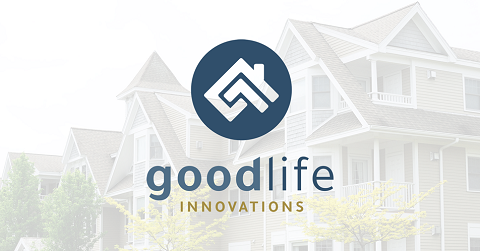GoodLife’s history is filled with passionate people demanding better care for their loved ones with intellectual and developmental disabilities (I/DD). Two of GoodLife’s founding board members also held faculty positions at the University of Kansas (KU) and understood the importance of applying best practices while addressing social concerns through services.
This likemindedness led to a partnership between KU and GoodLife that continues today.
This four-decade-long collaboration includes highly respected faculty, postdoctoral professionals, and students from the KU Department of Applied Behavioral Sciences, one of the top 10 graduate programs in applied behavior analysis (and second-most research producing) in the country. The department provides applied research, consultation, training, clinical practicums, quality assurance, and external evaluation to enhance and advance GoodLife’s mission. The partnership has been instrumental in developing some of GoodLife’s most effective programs. Together we’ve designed, measured, and evaluated innovative service models (including the Neighborhood Network) to promote meaningful, independent, and inclusive lives for individuals with disabilities. GoodLife continues to partner with KU to specifically enhance our mission through improving capacity, access, and quality practices.
Situational Observation Leads to Quality Practices
Dr. Claudia Dozer, Associate Professor in Applied Behavioral Science at KU, is a key player in the groundbreaking work being done at GoodLife to specifically improve quality practices. As a consultant and supervisor of doctoral and undergrad students, Dr. Dozier drives research to identify and develop better ways to work with adults with disabilities.
“My work with GoodLife began when Mike Strouse reached out for additional expertise in assessment and intervention with residents that displayed severe behavior disorders, my specialty,” Dr. Dozer shares. Through this partnership, she and her students went into GoodLife residential homes and day service programs and observed. From those assessments, they worked with GoodLife to develop Healthy Behavioral Practices, a baseline training for staff on active treatment: how to have positive interactions with residents, how to de escalate or respond to problem behavior, how to provide choices and opportunities for leisure activities, how to reward appropriate behavior, and so on.
“We spent a year and a half training staff in Healthy Behavioral Practices, and began to see such great results that over time GoodLife implemented this system into its mandatory new staff training,” says Dr. Dozer. “We’ve presented our data at national and international conferences, and there’s a lot of interest in a simple-to-teach, simple-to-implement training program that ultimately improves an individual’s quality of life–it’s very exciting.”
The collaboration not only provides benefits for GoodLife residents and staff, but graduate and undergraduate students are also getting unique, situational experience working with adults with disabilities and training staff – an opportunity they can’t find anywhere else in the country.
A Future of Possibility
Over the years, our partnership with KU has given us tools to create a better life for individuals with I/DD time and time again, and we’re not done yet. Dr. Dozer continues to work with GoodLife, observing behaviors to improve the quality of GoodLife’s systems, training, and staff support across the agency.
Want to know more about how we’re partnering to provide individualized, supported, and affordable care? Let’s chat – we’d love to share more about what we’re working on.
Authored by staff writers at GoodLife Innovations. For more information contact [email protected] and visit our website at www.mygoodlife.org.

